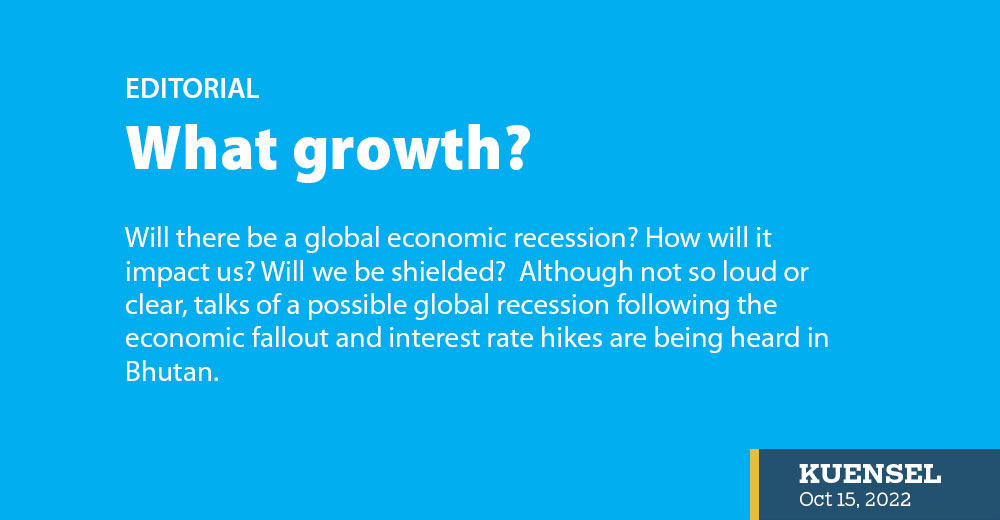Will there be a global economic recession? How will it impact us? Will we be shielded? Although not so loud or clear, talks of a possible global recession following the economic fallout and interest rate hikes are being heard in Bhutan.
The forecast, with available statistics, is that the economy, measured in the gross domestic product (GDP) sense is projected to grow at 4.9 percent this year. With the borders open and tourism having resumed, the expectation is that government spending will boost investment and demand.
A projected 4.9 percent growth will be something most countries would envy as they forecast a slowdown. But, as we get a better understanding of the current situation, we see hurdles ahead and a possible contraction, with or without the warning from the World Bank of a recession.
Our growth, as it is, is partly artificial as much of it is boosted by grants, aid or loans. With the 12th Plan in the last year, there could be some frenzy in spending or investments. At the same time, a long lull is expected as the government completes its five-year term and everything pauses for the parliamentary elections.
All these come at a time when the trade deficit is at the highest – Nu 13 billion, the convertible currency reserve is at its lowest, not meeting the required threshold, and uncertainty is the only certain thing in recent months.
Signs of a slowdown are already emerging. The monetary policies, those in the construction sector (one of the biggest), say is restricting borrowings or making it difficult. The government is nearly pleading with the central bank to relook into its policies of freezing lendings from some financial institutions. Some banks, on the other hand, are struggling with increased liquidity.
If there has to be economic activity, there has to be financing. Contractors are feeling that access to it has hit a wall. Even without a global recession, there is a lull in the sector that normally drives economic growth or GDP.
Meanwhile, other trends like unemployment and inflation are worth watching if not concerning. There is an exodus of young workforce leaving the country while those at home are complaining of life becoming expensive.
A recession is what we don’t want now. For the average citizen, especially in urban Bhutan, life is becoming more of a strain than it was in the past. House rent has gone up, food prices are on the rise, and the cost of fuel and transport has escalated. Inflation still hovers around 5 percent.
Amidst all these, we are perhaps forgetting that our development is guided by Gross National Happiness, a home-bred philosophy where economic growth is just one yardstick for development. It is time we paused for a while and assess our growth, if not progress.


